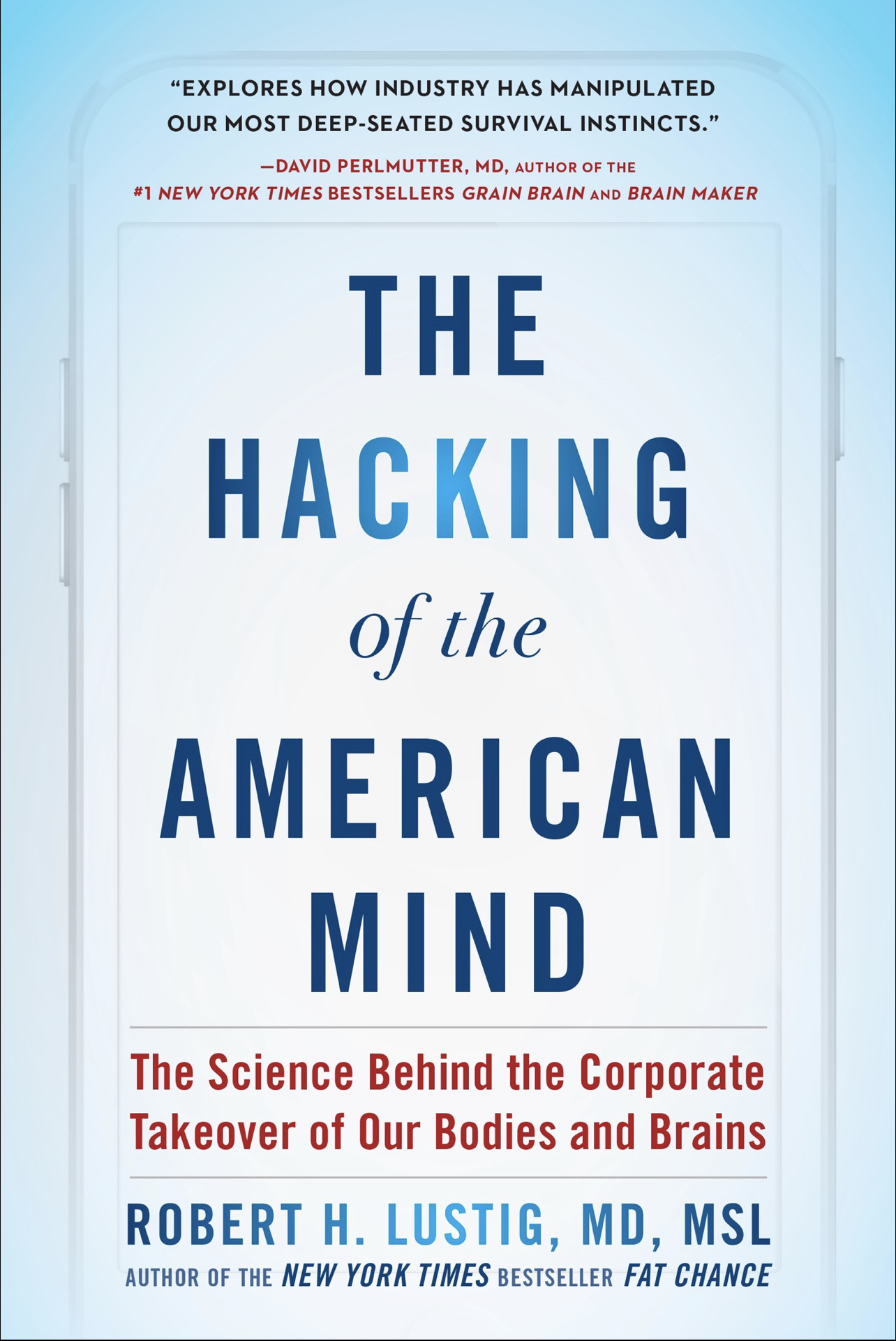← The Hacking of the American Mind The Science Behind the Corporate Takeover of Our Bodies and Brains
The Hacking of the American Mind Chapter 1. The Garden of Earthly Delights
Author: Robert H. Lustig Publisher: New York, NY: Penguin Random House. Publish Date: 2017 Review Date: 2023-5-1 Status:📚
Annotations
Highlight(pink) - Location 280
Pleasure takes many forms and has many synonyms: “gratification,” “amusement,” “indulgence,” “titillation,” “turn-on.” But the experience of pleasure is the visceral readout of activity of a specific brain area known as the “reward pathway.” In fact, pleasure is actually two phenomena in one. First, one experiences the motivation for a given reward. Second, one experiences the consummation of that reward as the visceral experience we call pleasure. The old adage goes, “Beauty is in the eye of the beholder.” Same for happiness. Happiness is in the brain of the experiencer. And it too has its own brain area, known as the “contentment pathway.” But as a philosophical concept, happiness has a long history and has been tangled up with the history of society for as long as there’s been society. Happiness consists of a grab bag of definitions that have changed and morphed over time. The root of the word, “hap,” means luck. And we see this etymological root in other words relating to chance occurrence: for instance, happenstance or perhaps. Early societies weren’t very happy; after all, with famine, plague, and war, they had a lot to be unhappy about. Happiness was chance, fleeting, and seemed to alight on only a select few in any given society.
Highlight(pink) - Location 350
If you google “happiness,” here’s what you get: “pleasure, joy, exhilaration, bliss, contentedness, delight, enjoyment, satisfaction, contentment, felicity.” Note the conflation of the concept of pleasure with the concept of happiness in this definition.
Highlight(pink) - Location 368
For the rest of this book, pleasure, derived from the French plaisir for “to please,” is defined as the concept of gratification or reward. The keys to this definition are: (1) it is immediate, (2) it provides some level of excitement or amusement, and (3) it is dependent on circumstance. Conversely, happiness is defined as the Aristotelian concept of eudemonia—that is, “contentment” or well-being or human flourishing, or, as in the introductory quote from Yeats, “growth”—physical and/or spiritual. The keys to this definition are: (1) it’s about life, not the afterlife, (2) it’s not prone to acute changes in one’s life, and (3) it is unrelated to circumstance, so anyone can be happy, not just the rich and the powerful.
Highlight(pink) - Location 376
Our current collective wisdom does not distinguish between reward and contentment at the etymological level, and fails to acknowledge the personal and societal consequences of mistaking one for the other at the biochemical level. And there are consequences, to be sure.
Highlight(pink) - Location 378
chronic excessive reward eventually leads to both addiction and depression; the two most unhappy states of the human condition. This confusion also belies the basis for many of today’s most successful marketing strategies (see Chapter 13). Over the past forty years, the dark underbelly of American enterprise has waged war on the American psyche. City College of New York sociologist Nicholas Freudenberg coined the term “corporate consumption complex” for the six biggest industries that sell us various hedonic substances (tobacco, alcohol, food) and behavioral triggers (guns, cars, energy).11 Add to that the consumer electronics sector, which further takes advantage of our neurobiology, and wrap it all up in some slick Madison Avenue packaging, and you have an unbeatable recipe for corporate profit.
